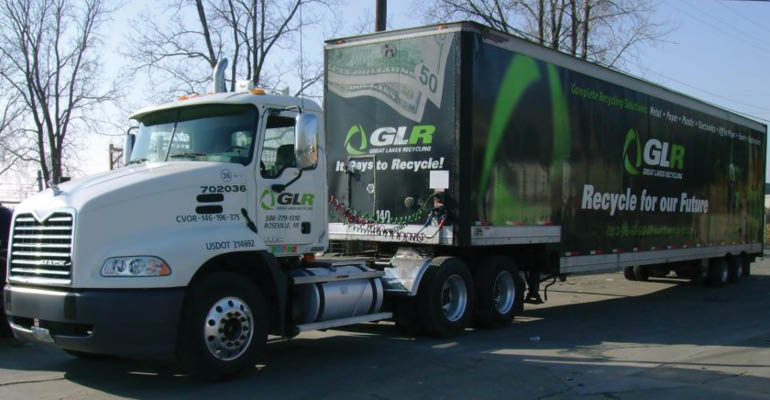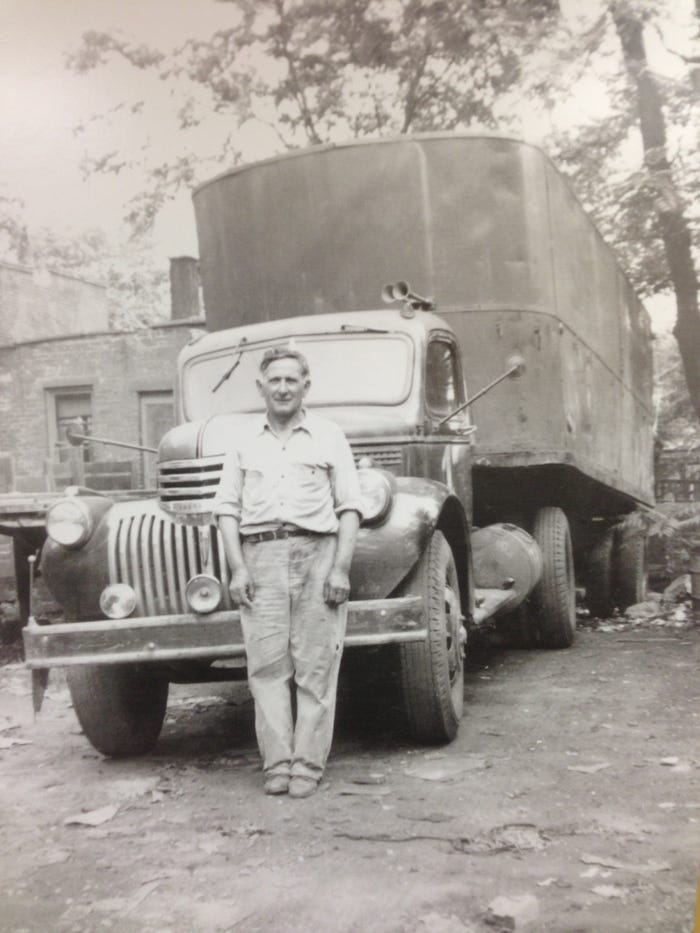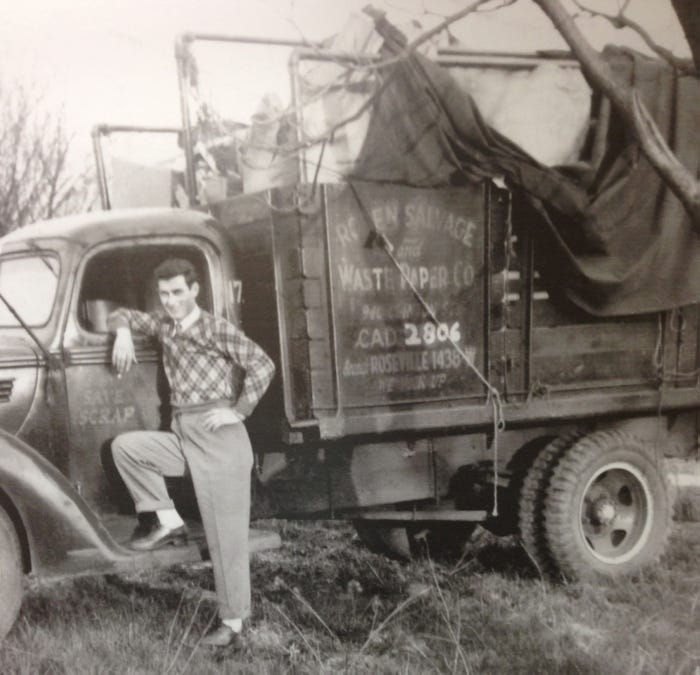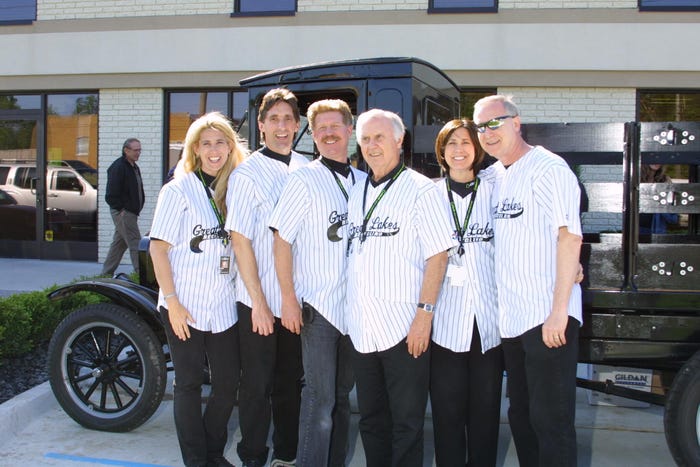We recently spoke with Ilene Rosen Bischer, vice president of GLR, about the history of GLR and what we can expect to see from the company in the future.

Roseville, Mich.-based Great Lakes Recycling (GLR), a full-service recycling company that specializes in metal, paper, e-waste, plastic and automobile recycling, is gearing up to celebrate its 90th anniversary.
GLR was first established by Henry Rosen in 1927 as a scrap metal and rags recycling company and has since grown into a successful family operation, which is now run by Michael Bassirpour and third-generation family members Ilene Rosen Bischer and Sandy Rosen.
“I like to think of my grandfather as a trendsetter,” says Rosen Bischer. “He started recycling long before it was the ‘right or cool’ thing to do. Over the years, he and my dad, Ben Rosen, expanded the business to include plastic, electronics and vehicles. Today, nearly everyone understands the necessity of recycling and more and more companies are more focused on sustainability plans—it just makes good business sense and cents.”
We recently spoke with Rosen Bischer, vice president of GLR, about how GLR was formed, how the company has grown over the years, the challenges she has faced and what we can expect to see from the company in the future.
Waste360: Tell us about how and when GLR was formed.
Ilene Rosen Bischer: My grandfather, Henry Rosen, launched GLR in 1927. He was a Russian immigrant and didn’t speak English very well so it was an easy way for him to have an income at the time.

When he first began the company, he accepted scrap metal and rags for primary. Then in the 30s and 40s, he began accepting cardboard, which was becoming a popular material at the time. During that same time period, my father, Ben Rosen, was taken out of school at the age of 16 to help my grandfather run the company. And about 10 years later, my uncle joined the business. My dad and uncle ran the business until the early 90s, when my uncle passed away.

Shortly after that, my brothers and I joined the business and worked there on and off. My brother Sandy and I have worked there since the 90s, and we are the owners today.
Waste360: Over the years, the company has grown from just accepting scrap metal and rags to accepting materials like paper, plastic, e-waste and automotives. Tell us a little bit about that.
Ilene Rosen Bischer: In the mid-90s, we were the first company to open a single stream recycling facility in Roseville, Mich. We were doing curbside recycling at the time and decided to open up a single stream recycling facility to help manage the materials that were being collected. In addition, we maintained (and still maintain) a metal scrap yard at our Roseville facility.
We eventually ended up selling our single stream recycling plant and merging with Advanced Recycling in 2014. Since then, we have expanded to nine locations in Livonia, Port Huron, Roseville, Flint Township, Genesee Township, Ann Arbor, Northville, Oak Park and North Tonawanda, N.Y.
Over the years, we expanded into electronics recycling, which started to become a commodity that we needed about 10 to 15 years ago. And about five years ago, we expanded into automotive recycling, which has tremendously grown over the years.
As a company, we work with the commodities that make sense to us. The commodities are based on the commodity market, and we follow the pricing that we receive from the specific mills. We pay our customers based on what we are getting paid, and our customers know what to expect pricing wise because they shop around and do their own research on the commodity market.
Waste360: Tell us about your career at GLR and how you’ve grown with the company over the years.
Ilene Rosen Bischer: I am proud to say that I have done almost every job available at GLR, including driving a truck to pick up materials because our drivers were busy or had gone home for the day. I am not afraid to do what needs to be done, even if it’s a difficult or unfamiliar task.
When I first started working here, I didn’t see myself staying long. But over the years, I developed a love for the business. The energy that goes along with this business really motivated me to stick with it.
I started working at GLR in 1982 running the scale and pay cage and have since worked my way up to vice president and partner.
As a woman, I never really paid too much attention to the fact that there were fewer women in this industry than other industries. But now, I am starting to see more women becoming interesting in waste and recycling and entering this industry. In fact, most of the mill buyers that I deal with for paper and cardboard are women.
People get interested in the recycling industry in very odd ways. For example, there was a study done recently that revealed that the largest demographic of new recyclers is young mothers because their children come home from school and say that they want to start recycling at home. The interest, which ultimately stems from the child, helps mothers seek out career paths in recycling because they are truly excited about it after seeing their children become so excited about it.

Waste360: Since joining GLR, what are some of the challenges that you have faced and overcome?
Ilene Rosen Bischer: My biggest challenge came when I first wanted to join the family business. I found out that my dad was going to make my brothers partners, and I was very upset and hurt that he didn’t ask me to become a partner as well. I approached my dad about the situation, and I ended up getting an equal share of the company because I fought for it.
In addition, I have had men talk to me like they expect me not to know something because I am a woman. But I have expressed my knowledge of the industry endless times over the years, and I have gained respect.
Waste360: GLR applies “The Golden Rule” to everything that it does. What is that golden rule and how does it help you stand out from your competitors?
Ilene Rosen Bischer: We treat our customers and employees the same way that we would want to be treated. Back in the 80s, we knew everyone who came through our door and treated them like family. And to this day, we still treat every customer the same and like family, whether it’s someone who doesn’t have enough money to buy their next meal or someone who can afford to buy meals for the whole town.
Ultimately, it comes down to how we treat our customers, how efficient we are with our pickups, how quickly our customers get paid, how fair our prices are, how easy it is to get into our facilities, how clean our facilities are, etc. We stand out from our competitors by being an honest, hardworking and caring recycling company that has offered excellent services for 90 years.
Waste360: GLR is celebrating its 90th anniversary this year. How are you celebrating this milestone?
Ilene Rosen Bischer: We are in the process of planning a big picnic, which will be held in August with all of our divisions, employees and family members. My dad is 93 years old and still comes into the office so it will be really great to celebrate this accomplishment with him.
Waste360: What can we expect to see from GLR in the future?
Ilene Rosen Bischer: We are moving forward with our processes every day, and we will adapt as necessary, whether it’s adding autonomous vehicles or other technologies into our business.
In the future, we will also be ready to take on new and different materials. If you look at where we evolved from and what we have accomplished during the downturn of the economy and growth of other companies, we have survived by being strong and offering excellent services.
This year, we plan to recycle about 30,000 end-of-life cars. That number is expected to increase next year, and in order to keep up with the growth, we are planning on opening up five more scrap yards. In addition to that, we have an online buying and trading brokerage website called thescrappost.com that offers people with an easy way to buy and trade recyclable materials.
GLR also recently started an agreement with a local Chevrolet dealership, which will help get more vehicles off lots in a timely manner. Instead of the dealership sending end-of-life vehicles to auction, GLR picks them up, pays cash or check for the vehicles and sends them off to be recycled.
Lastly, GLR will continue to grow in e-waste recycling because we think that is the future. There will always be paper, cardboard and metal to recycle, but there is becoming more of a need for materials like e-waste, automotives and Styrofoam.
About the Author(s)
You May Also Like




